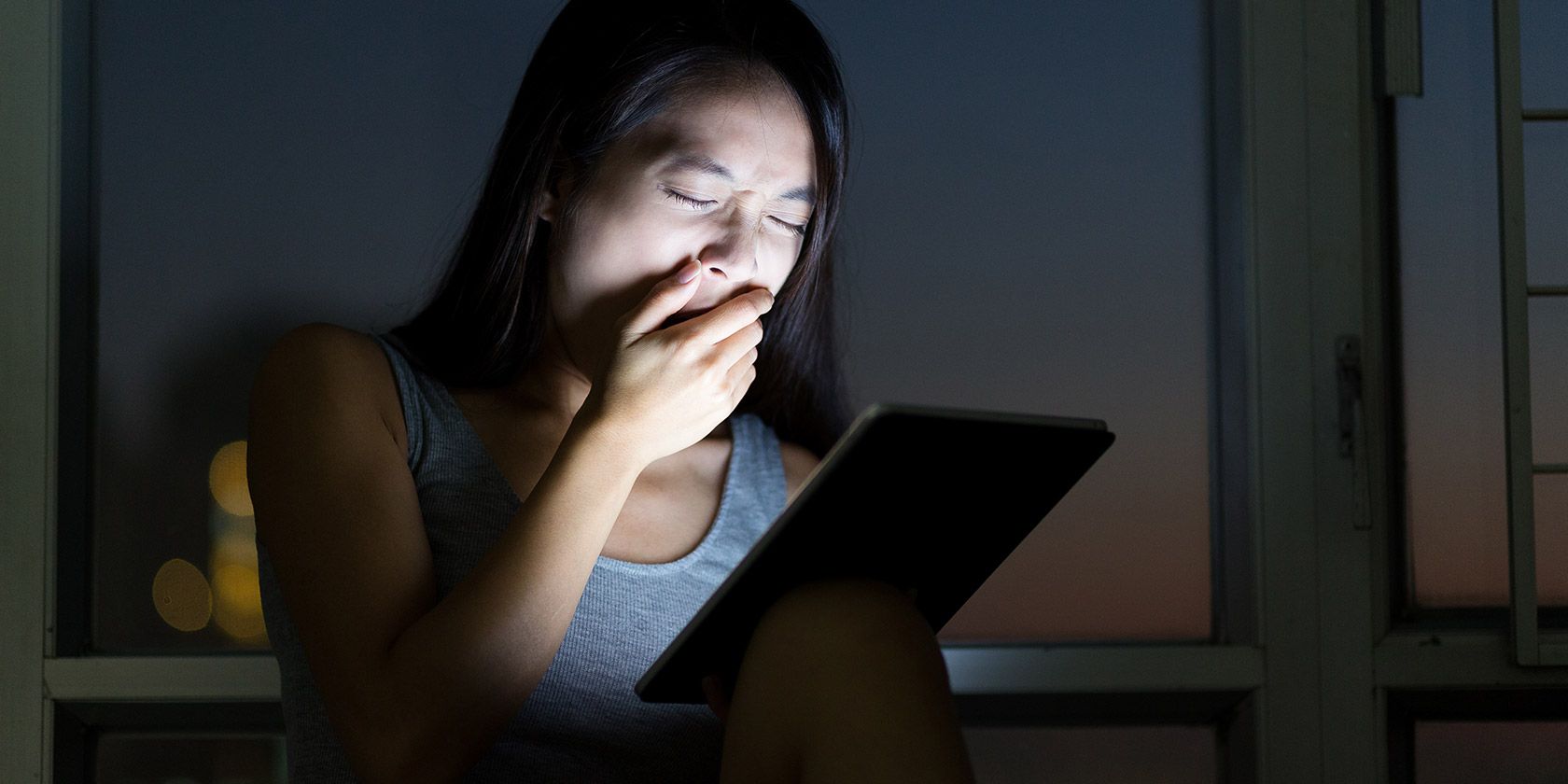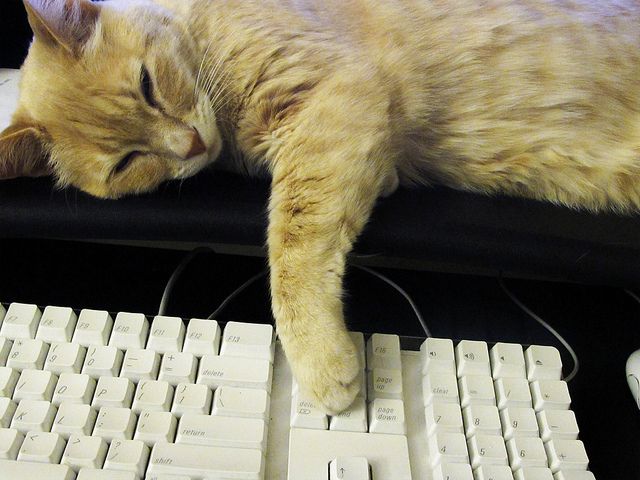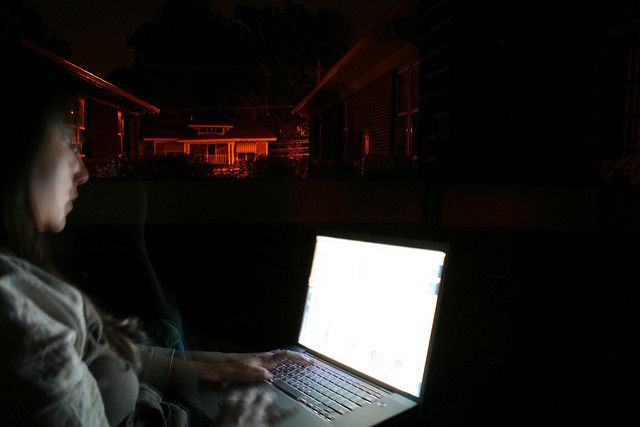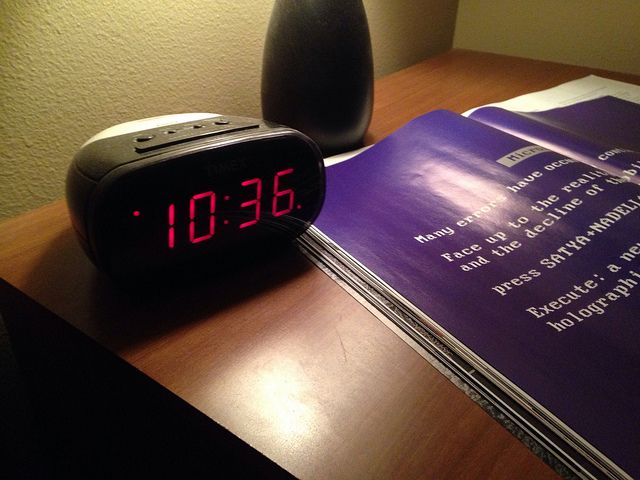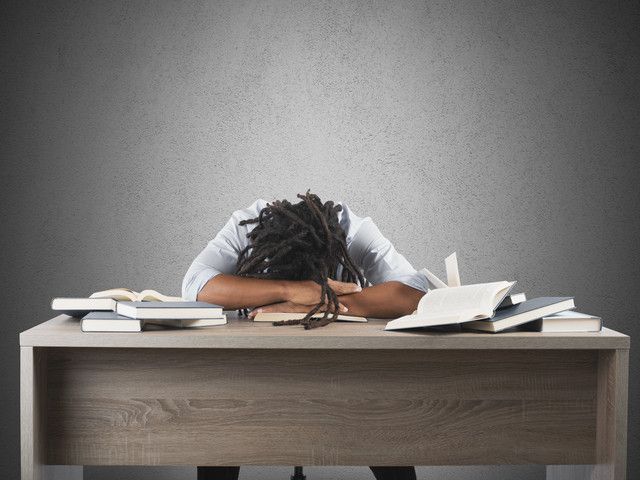Over the last few years, people have perpetuated the idea that computer screens and mobile devices can harm our sleep, which is why F.lux and Apple's Night Shift have exploded in popularity. But do they actually work as advertised?
The answer might surprise you.
Sleep seems to be the one thing that all of us could use a little more of these days. We're sleeping fewer hours per day than ever before, and staring into the bright lights of our computers and phones isn't helping us get to bed any earlier -- so let's find out whether this trick is a real solution.
The Science of Sleep Deprivation
Before we delve too far into the science of sleep, do note that we aren't a medical site nor are we medical professionals. Don't take any of this as personal advice or guidance for your sleep habits. If you have any questions or concerns about your own sleep health, talk to your doctor.
The University of Maryland Medical Center advises that adults need between five and nine hours of sleep -- where you fall on that spectrum is different person to person. Not everyone needs a straight eight hours.
That being said, studies have found a marked overall increase in insomnia and daytime sleepiness in modern adults. Just under 20% reported having trouble sleeping and around 10% reported excessive sleepiness throughout the day.
What's causing our sleep troubles? Harvard Sleep scientist Charles Czeisler places the blame squarely on our devices. Artificial light has hurt our sleep in general, but the LED lights in screens can exacerbate the problem.
Czeisler was involved in a study that compared reading on a tablet and a paper book in the same low light. Tablets were linked to taking longer to fall asleep and delaying REM sleep. The tablet group was also found to be sleepier in the morning.
The reason that LED causes more of a problem than other lights is that LED lights produce a color that's far bluer than fluorescent or incandescent lights -- and blue light is linked to reduced melatonin as well as increased alertness according to one study. Not only does it keep you from getting sleepy, it makes you more awake.
How Night Mode Apps Work
F.lux was one of the first apps to help fight the harmful effects of blue light. Rather than simply dimming your screen, F.lux physically reduces the amount of blue light emitted by your screen, acting as a blue light filter. The app warms up even further as the night progresses, allowing you to get a more natural light pattern.
It can take a bit of getting used to, as your screen is going to have a more of an orange look to it. The warmer colors obviously aren't great for color-intensive work -- such as photography or video editing -- but these apps usually allow you to temporarily disable the warming when necessary.
Not long ago, Apple also debuted Night Shift as a tentpole feature in iOS 9.3. This works similarly to F.lux by reducing the amount of blue light emitted from the iOS device. It can be scheduled to run at a certain time, and you can adjust how warm it makes the screen's color.
Android has a few different options available, like Twilight. There are some others if you are willing to root your device. An actual system utility is reported to be coming with Android N.
In other words, whether you're using a desktop, laptop, tablet, or smartphone, you now have all kinds of options for reducing the amount of blue light that reaches your eyes during the night. That should mean that your insomnia issue is solved, right?
The True Efficacy of Night Mode
While these features are nice and they seem to make it easier to use a computer at night, what evidence is there that F.lux and Night Shift can help us develop better sleep habits?
A recent study tested this claim by using blue light filtering glasses and an app that filtered blue light to track the effects of these devices on sleep and melatonin production. (The app was un-named in the study, but was probably F.lux.)
The study found that the software and the glasses both reduced blue light's effect on melatonin production.
The conclusion of the study was that devices and apps should come equipped with an automatic night mode, allowing the setting changes to happen automatically based on the light cycle in your area of the world. Which describes exactly what Flux and Night Shift are already doing.
Anne-Marie Chang, a sleep expert from PSU, said in an interview with Live Science that studies have shown this type of filtering can indeed reduce the effect of devices on sleep patterns. It should be noted that blue light isn't the only thing affecting sleep patterns.
Blue Light Filters Aren't Enough
One of the problems with the science of light filtering is that it's just too new. Flux has been around for quite some time, but most of the research on their site is related to the effects of blue light.
There are only two studies linked on their page to the effects of filtering out blue light. One of them 404's now, but both were related to improved mood and performance, not improved sleep patterns. Apple doesn't cite any studies on the update page for iOS 9.3 and Night Shift.
On the other hand, red light has also been linked to sleep problems, even though it doesn't have the same effects on melatonin. So despite reducing the harmful effects of blue light, other colors of light might still keep you awake.
Brightness can also be a factor in the amount of sleep you lose. If your device's brightness is cranked to the max, filtering might help but you're still going to be wide awake. Even on a completely black screen, max brightness still gives off a lot of light.
And light isn't the only issue. When you're on a device, you're being mentally active -- flipping between apps, responding to emails, taking one last peek at Twitter, browsing Reddit, etc. This keeps your brain active, leading to a correlation between social media use and sleep disturbance, similar to how bad TV habits can cause insomnia.
Better Sleep: More Than Night Mode
If you're using your devices at night, filtering will help you. However, don't expect it to fix all your problems. You're far better off reading an unlit Kindle or paperback book than taking your tablet to bed, even with filtering enabled.
Mitigating the damage isn't a bad thing, but it isn't the cure-all that many pundits have made it out to be. It should be said that most of these studies are correlative, but they do point to an overall effect. The science only seems certain of one thing: if you want a good night's sleep, put your devices away a couple hours before bedtime.
If you need help with those bad habits, use these free printables and ebooks to track or change your habits.
Image Credits: feeling tired when using tablet by leungchopan via Shutterstock, Anita Heart via Flickr, Lindsey Turner via Flickr, David Mulder via Flickr, alphaspirit via Shutterstock

